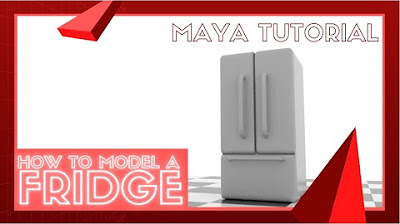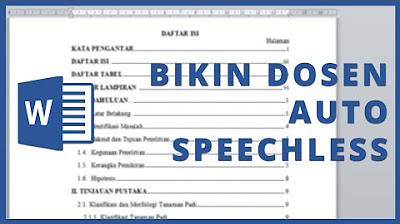Build Shaker Cabinet Doors With Table Saw | New to Woodworking?
Summary
TLDRThis video provides a step-by-step tutorial on how to make a shaker style cabinet door using just a table saw. It explains the difference between door styles and rails and how to properly measure and cut them. It then shows how to run a centered groove on the pieces to accept the plywood panel, and how to create well-fitted tenons on the rails. Finally, it demonstrates gluing up and clamping the door, checking for square, and ideas for installing hardware and finishing. The goal is to teach beginners how to DIY a quality cabinet door with limited tools.
Takeaways
- 🛠️ You can make a high-quality shaker cabinet door using just a table saw and a standard 10-inch blade, no need for a router table or dado set.
- 📏 Understanding the difference between door stiles and rails is crucial for proper measurement and assembly; stiles run vertically while rails run horizontally.
- 📐 The standard width for stiles and rails is around 2 to 2.5 inches, tailored to the specific size of the cabinet or drawer.
- 🔍 To estimate material needs, measure the cabinet opening's height and width, multiply each by two, and add extra for adjustments.
- ✂️ Cut stiles to the exact door height and calculate rails' length by accounting for stiles' width and tenons' additions.
- 🚀 Create grooves in stiles and rails by raising the saw blade to 3/8 of an inch and adjusting the fence for a centered cut.
- 📋 Use a scrap piece to test and adjust the groove's width to match the plywood panel's thickness, ensuring a snug fit.
- 🛠️ Mill tenons on rails' ends, using a scrap block for safety and precision, and make adjustments as necessary for a tight fit.
- 🔧 Before assembly, ensure the quarter-inch panel is measured correctly, allowing for a slight reduction in size for a perfect fit.
- 🔩 Dry fit before gluing to check for any issues, then glue and clamp the door, ensuring even pressure and checking for squareness.
Q & A
What are the two common methods used to make a shaker cabinet door?
-The two common methods are using a router table and router bits specifically designed to make doors, or using a table saw with a stacked dado set.
Why can't you just cut the rails to the exact door width?
-The rails need to fit in between the styles, so you have to account for the width of the styles. You also need to add extra length to the rails for the tenons.
How much wider should you make the groove compared to the plywood panel thickness?
-The groove should be slightly wider, about 1/32", to allow for easy insertion of the panel while still keeping it snug.
What is the purpose of the block attached to the fence when cutting tenons?
-The block acts as a stop, allowing you to precisely set the distance of the tenon shoulder cut.
Why do you recommend dry fitting everything before gluing?
-Dry fitting allows you to identify any issues with the fit of the parts ahead of time. It's much easier to make adjustments before gluing.
Do you need to glue the plywood panel?
-No, you do not need to glue the panel. It should float freely within the grooves in the rails and stiles.
How can you ensure the door doesn't warp as the glue dries?
-Make sure the door is flat against the underside of the clamps. If one corner rises up, tap it back down gently before the glue sets.
What should you do if the door is slightly out of square?
-A small amount of out-of-square, like 1/16", is acceptable and won't be noticeable once installed. No adjustments needed.
Why drill holes for hinges before finishing the door?
-Drilling holes before finishing allows you to paint/stain all surfaces evenly without having to work around the hardware.
What type of bit is best for boring European hinge holes?
-A 35mm Forstner bit matched to the hinge cup diameter drilling in a drill press makes clean, accurate holes.
Outlines

This section is available to paid users only. Please upgrade to access this part.
Upgrade NowMindmap

This section is available to paid users only. Please upgrade to access this part.
Upgrade NowKeywords

This section is available to paid users only. Please upgrade to access this part.
Upgrade NowHighlights

This section is available to paid users only. Please upgrade to access this part.
Upgrade NowTranscripts

This section is available to paid users only. Please upgrade to access this part.
Upgrade Now5.0 / 5 (0 votes)





